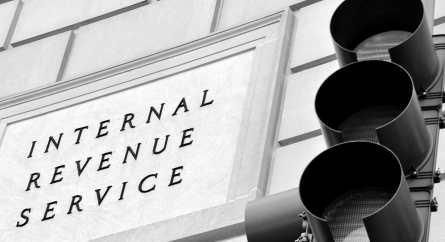IRS and States Crack Down on POS Systems: Zapper Software
A good point of sale (“POS”) system is critical for any business engaged in sales to the public and having one in place goes a long way to ensuring that revenue and profits are being reported properly to federal, state and local tax authorities. Along with the proliferation of companies who create the software that drive POS systems, however, is a dubious technology known as revenue suppression software (“RSS”) that is also sold as an add-on to the basic POS system.
RSS programs, also known as “zappers”, are used to delete some or all of a restaurant’s cash transactions and then reconcile the books of the business. Unlike voiding sales or comping meals from time to time that would appear on a report as a zero dollar transaction, a restaurant owner, for example, can use the zapper software to delete entire transactions from the day’s receipts and exclude that information completely from financial reports. The result is that the restaurant owner reports less revenue and pays less sales and meals tax and less income tax than what is actually owed.
As a reminder, the willful failure to completely and accurately report all income is a felony under Massachusetts and federal law. Section 7201 of the Internal Revenue Code (“IRC”) states that “any person who willfully attempts … to evade or defeat any tax … [is] guilty of a felony and, upon conviction thereof, shall be fined not more than $100,000 ($500,000 in the case of a corporation), or imprisoned not more than 5 years, or both, together with the costs of prosecution.” Section 73 of Chapter 62C of Massachusetts General Laws is nearly identical to its federal counterpart and calls for the same punishment.
One example of the recent crackdown on the users and creators of this software to evade taxes is the recent prosecution of John Yin, a salesman for a Canadian company that sells POS software.
Yin worked as a salesman for Profitek, a British Columbia company with offices in China and a growing dealership network in North America, selling POS systems for hospitality and retail industries. Profitek designed, marketed, sold, and supported revenue suppression software as an “add-on” to its Profitek point-of-sale software.
Yin acknowledged in his plea agreement with the federal government that he successfully sold the POS software, and assisted in the widespread distribution of the zapper software, to dozens of customers in and around Seattle over the course of several years. Since the zapper software could only be ordered from their supplier in China, Yin would put his clients in touch with the Chinese company and facilitate their purchase of the software. Yin also serviced the zapper software once his clients purchased and installed it. Yin also admitted that his clients’ use of zapper software allowed them to consistently and significantly underpay their various federal, state and local taxes, Social Security and Medicare taxes, and federal income taxes. Yin stipulated that the grand total of unpaid taxes attributable to zapper software sold by Yin over a five and a half year period to those restaurants in and around the Seattle area was $3,445,589.
In April 2017, A federal judge sentenced Yin to 18 months in prison followed by 3 years of supervised release and ordered him to pay $3,445,589 in restitution. It is unclear whether Yin’s plea agreement calls for cooperation with the state and federal authorities in other similar investigations.
Many states have already outlawed RSS or zapper software including Washington, Michigan, Florida, Georgia, Utah and West Virginia, and others are considering proposals to enact similar laws. The existence of such software on any POS system is difficult, if not impossible, to justify and can be used as evidence of willfulness in any criminal prosecution or civil tax proceedings.
A warning to those who employ the use of zapper software: the data that is deleted still exists on the hard drive that stores the POS data as well as the backup drive. There is no legitimate reason to have zapper software as part of a POS system and its existence can only lead to trouble as evidenced by Mr. Yin.
Categorized: Taxes
Tagged In: federal taxes, IRS, social security, software, state taxes











